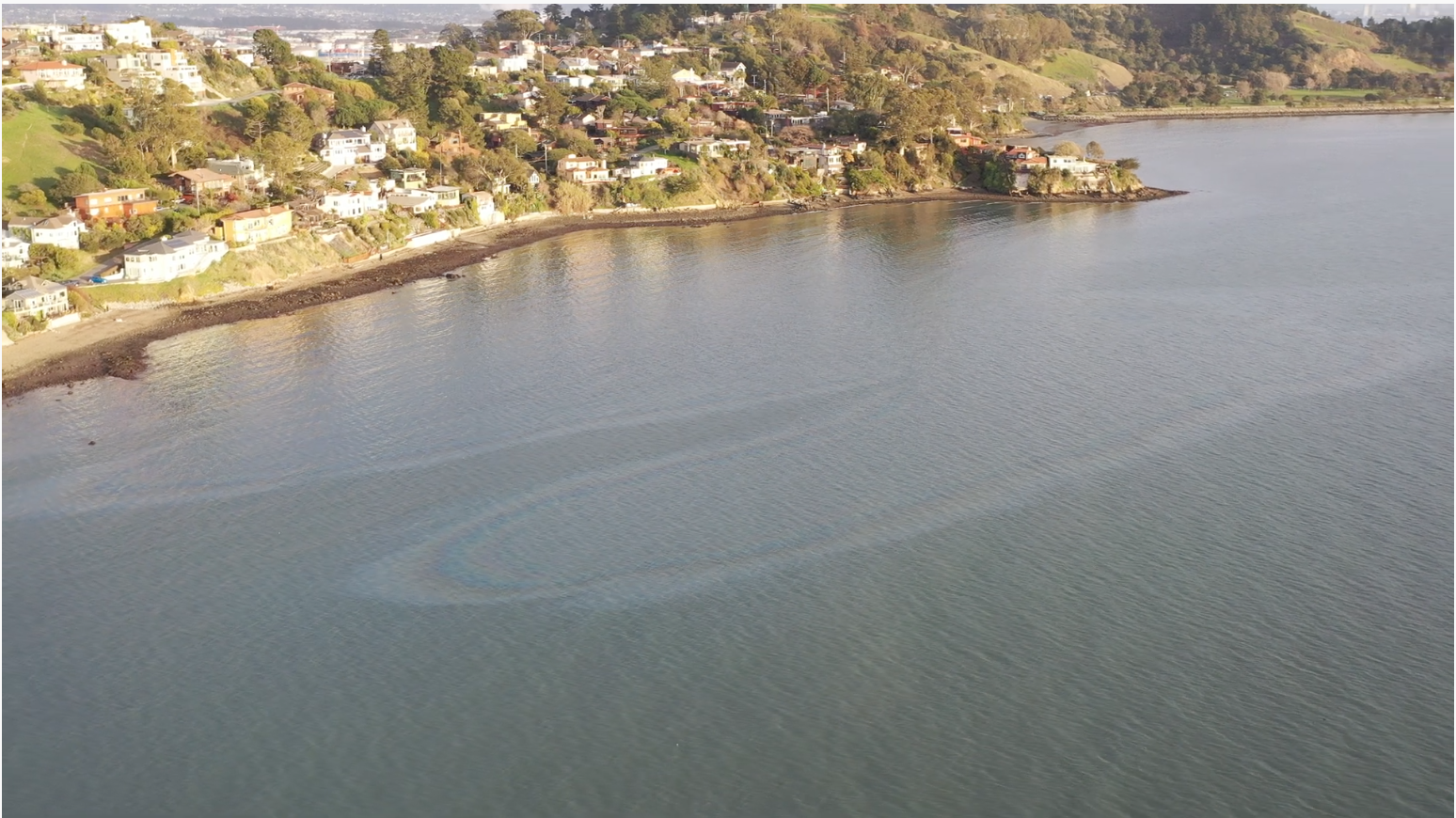By Jacob Klein
On February 10th, a leak in one of the pipelines operated by the Chevron Richmond Refinery spilled around 600 gallons of oil into the waters of the San Francisco Bay near Richmond and San Pablo. The pipeline leaked a petroleum and water mixture at a rate of five gallons per minute for about two hours, leaving an oily sheen four miles long. Emergency responders were dispatched to resolve the crisis, and a health advisory was issued calling for locals with "respiratory sensitivities" to stay indoors.
This is one more example of how fossil fuel companies continue to negatively impact the health and safety of frontline communities and damage sensitive ecosystems. Impacted communities reported a strong smell and respiratory difficulty near the spill site. These are the same communities already dealing with toxic emissions from the refinery itself. People were also warned to avoid the water due to its contaminated nature. Although no animals appear to have been impacted by the oil, there’s some concern for local eelgrass beds and other Bay habitats.
These kinds of crises should not be tolerated and require accountability from their actors. On February 16th, the Richmond City Council heard two items related to holding Chevron accountable. One was a resolution in support of a recommendation to the Bay Area Air Quality Management District (BAAQMD) for the strongest health and safety regulations possible for refineries’ Fluidized Catalytic Cracking Units. These “cat crackers” are systems that are used to break down heavy crude oil into usable fuels, and which release hazardous emissions in the process. The second item on the Council’s agenda called on several agencies to present reports on the oil spill and possible impacts that may arise from it.
Actions like these are important steps to support communities impacted by fossil fuels, but there is much more to be done. Environmental justice groups like Communities for a Better Environment and Asian Pacific Environmental Network are calling for a transition away from fossil fuels to truly sustainable energy sources. That shift, along with site remediation, support for the communities long hurt by fossil fuels production, and development of well-paying green jobs, is known as a “just transition.” We must look to these groups for their leadership on this issue as they’ve experienced it firsthand for decades.
On the statewide level, the concept of just transitions is starting to get more and more traction. In last year’s Executive Order, Governor Newsom issued a mandate to the Office of Planning and Research (OPR) to develop a roadmap for the state on just transitions. That process will begin soon, with a public process looking to begin this spring and the roadmap slated to be released this summer. It remains to be seen how this will unfold and what manner of roadmap document will be released.
Other possibilities for moving statewide just transitions have appeared in the state legislature. State Senators Scott Weiner and Monique Limón introduced a bill, SB 467, which would ban harmful oil extraction methods. It also includes language about supporting impacted workers who may lose jobs. Meanwhile, Assemblymember Al Muratsuchi introduced AB 1453 that calls for establishing a Just Transition Advisory Commission to develop and adopt a process for a Just Transition plan.
Making our voices heard on these issues is essential to ensuring a transformative and equitable transition. With that in mind, Sierra Club signed on with 80 other environmental, community, faith-based, parent, and business groups in a letter to the OPR, largely focused on process and public participation. In order to have a holistic just transition plan, there must be stakeholder presence, particularly of those most impacted. While we want a seat at the table for environmental groups, we also demand seats for labor representatives and environmental justice communities who are often communities of color facing the worst of environmental racism. It’s essential that we listen and center those concerns as we move forward for a just transition.
Photo credit: From YouTube video by San Francisco Baykeeper.